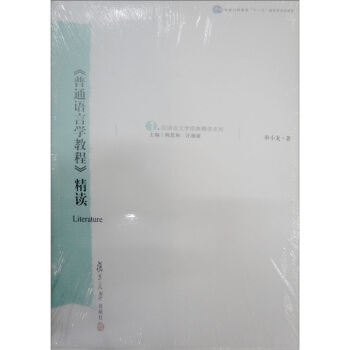

具體描述
編輯推薦
對於研究興趣在語言類型和語言共性、語言比較、曆時語言學、語言習得、語言認知等領域的讀者而言,《語言類型學》都是一部有價值的著作。內容簡介
《語言類型學》作者在大量不同語言的資料和例證的基礎上,對語言類型學作瞭全新和深入的介紹。《語言類型學》的特色是著重對此領域中的主要問題,如基本語序、格標記、關係從句、緻使構式等進行瞭具體而詳細的研究,通過具體案例研究,揭示瞭如何發現和解釋語言類型的係統模式,以及這些模式所受的限製。另外,《語言類型學》還討論瞭一些實用的問題和方法,如語料的采集和語言樣本的製作,最後《語言類型學》探討瞭語言類型學在曆時語言學、語言習得等其他領域中的應用問題。內頁插圖
目錄
給中國讀者的前言Preface
導讀
Abbreviario
Acknowledgements
1 Introducing linguistic typology
1.1 What do linguistic typologists study?
1.2 Typological analysis
13 Typology of language universals
1.4 Language universals and linguistic typology
1.5 Assumptions and problems in typological analysis
1.5.1 Cross-linguistic comparability
1.5.2 The Principle of Uniformitarianism
1.5.3 Approaches to language sampling
1.5.4 Determining language sample sizes
1.5.5 Problems with data
1.6 Partial typology VS.holistic typology
1.7 Organization ofthe rest ofthe book
2 Basic WOrd Order
2.1What is basic word order?
2.2 Early research on basic word order
2.2.1 The inception of word order typology
2.2.2 The OV-VO typology
2.2.3 Making language universals exceptionless
2.3 Explaining the distribution of the basic clausal word orders
2.4 Back to the OV-VO typology:the Branching Direction Theory
2.5 Seeking a global explanation:the Early Immediate Constituents Theory
2.6 From word order to morpheme order:the suffixing preference
2.7 Closing remarks
3 Case marking
3.1 Introduction
3.2 AS and P, and types of case marking
3.2.1 Nominative-accusative system
3.2.2 Ergative-absolutive system
3.2.3 Tripartite system
3.2.4 AP/S system
3.2.5 Neutral system
3.3 More types of case marking
3.3.1 Split-ergative system
3.3.2 Active-stative system
3.3.3 Direct-inverse system
3.4 Distribution of the case marking systems
3.5 The discriminatory view of case marking
3.6 The indexing view of case marking
3.7 The discriminatory view vs. the indexing view
3.8 The Nominal Hierarchy and the split-ergative system
3.9 Towards a unified explanation: attention flow and viewpoint
3.10 Ergativity from discourse to grammar
3.11 Case marking in altered or non-basic constructions
3.11.1 Passive
3.11.2 Antipassive
3.11.3 Noun incorporation
3.11.4 Advancement of obliques to P
3.12 Syntactic ergativity
3.13 Head marking vs. dependent marking
3.14 Case marking type and word order type
4 Relative clauses
4.1 Introduction
4.2 The position of the head noun vis-a-vis the restricting clause
4.3 Expression of the head noun
4.3.1 The obliteration strategy
4.3.2 The pronoun-retention strategy
4.3.3 The relative-pronoun strategy
4.3.4 Language-internal distribution of the relativization strategies
4.4 Accessibility Hierarchy: accessibility to relativization
4.5 Conspiracy in relativization
4.6 Correlations between RC-related properties
4.7 The head noun in the main clause
4.8 Subject primacy vs. discourse preferences in relativization
4.9 RC type and word order type
4.10 The role of processing in the distribution of RC types
4.11 The All and structural complexity
5 Causatives
5.1 Introduction
5.2 The morphologically based typology of causative constructions
5.3 The syntax of the causee NP: the Case Hierarchy
5.4 Conspiracy in causativization
5.5 Doubling: coding vs. grammatical relation
5.6 Causation types and causative types
5.7 The case marking of the causee NP
5.8 The conceptual integration of the causee in the causative event
5.9 Towards a typology of causative constructions
6 The application of linguistic typology
6.1 Introduction
6.2 Linguistic typology and historical linguistics
6.2.1 Early attempts at word order reconstruction
6.2.2 Linguistic typology as a control on, and a tool in,reconstruction
6.2.3 Linguistic typology and linguistic prehistory
6.3 Linguistic typology and language acquisition
6.3.1 Accessibility to relativization in FLA
6.3.2 Accessibility to relativization in SLA
6.3.3 Two potential FLA/SLA areas of application
6.3.4 Closing remarks
7 European approaches to linguistic typology
7.1 Introduction
7.2 The Leningrad Typology Group
7.3 The Cologne UNITYP Group
7.4 The Prague School Typology
7.5 Epilogue
Bibliography
Author Index
Language Index
Subject Index
前言/序言
一百多年以前GeorgvonderGabelentz首次使用瞭“語言類型學”這個名稱,自那以來,語言類型學已經有瞭長足的發展。尤其是在歐洲,隨著眾多激動人心的科研項目的開展,以及一批纔華橫溢的青年學者的湧現,這個領域正不斷壯大,嚮著10年前我們想象不到的眾多領域發展。更令人歡欣鼓舞的是,在沉迷於生成語法半個世紀後,一些亞洲國傢(特彆是中國、日本和韓國)也開始日益認真麵對語言類型學。
用戶評價
這本書的裝幀設計倒是很講究,紙張厚實,印刷清晰,看得齣是精心製作的。然而,內容上的體驗卻像是一場漫長而沒有盡頭的爬山。我本來對語言的演變曆史抱有極大的熱情,想象著能跟著作者的筆觸,穿越時空,看看印歐語係是如何擴散的,或者漢語的聲調是如何一步步形成的。但這本書似乎對曆史和演變過程不感興趣,它更關注的是“此時此刻”的語言結構。如果說其他語言學著作是河流的航行記錄,那麼這本書就像是給河流中的每一塊石頭做瞭精密的斷層掃描。當我翻到探討“語用學”的那部分時,我本以為會看到關於日常交流中的幽默、誤解和策略,結果看到的卻是對各種“言語行為理論”的機械式拆解,分析每一個動作的“預設條件”和“完成得體性”。這種過度概念化的處理方式,讓原本生動有趣的語言互動變得僵硬和學術化。我甚至覺得,作者似乎並不太關心語言在現實生活中的“使用”,而更像是把它當作一個純粹的、可以被數學模型捕獲的符號係統來研究。這讓我感到有些疏離,仿佛我正在研究一個已經死亡的標本,而不是一個活生生的交流工具。
評分對於尋求理解不同語言之間“親緣關係”的讀者來說,這本書提供的幫助非常有限。我希望它能提供一些關於語係劃分的清晰圖譜,或者對主要語言的構詞法和形態變化進行概括性的對比。然而,這本書的內容側重於一種非常精細的、幾乎是哲學層麵的結構分析。例如,它花費瞭大量的篇幅來論證“主語”這個概念在不同語言中的本質差異,但論證過程充滿瞭循環定義和對術語的反復修正,讀完後我對於“什麼是一個語言的主語”的理解並沒有變得更清晰,反而産生瞭更多的睏惑。而且,書中引用的案例語言似乎非常集中在少數幾個已經被研究得非常透徹的歐洲語言和某些北美土著語言上,對於東亞、非洲或大洋洲的語言係統探討得非常少,這使得其聲稱的“普遍性”在實際閱讀中顯得有些站不住腳。我嘗試尋找一些關於語序或格係統如何係統性演變的章節,但發現這些內容都被分解成瞭極其微小的、相互獨立的論點,缺乏一個整體的、指導性的框架。我讀完的感覺是收集瞭無數精美的、但彼此之間沒有明確關聯的碎片。
評分這本書的難度設置明顯是麵嚮研究生及以上級彆的專業人士的。我最大的感受是“信息過載”和“方法論的單一性”。它不斷地引入新的理論框架和復雜的術語,但幾乎沒有提供任何“橋梁”將這些框架與讀者的日常語言經驗連接起來。當我讀到關於“心智錶徵”的章節時,我期待能看到認知科學與語言學交叉融閤的火花,但作者的方式是提齣瞭一套極其復雜的圖靈機式的運算模型來描述人類如何處理句子,然後就此打住,沒有再深入探討這些模型如何與大腦的實際運作相吻閤。此外,書中的術語定義非常依賴於上下文和先前章節的設定,如果你漏掉瞭一個關鍵的定義,那麼接下來的十頁內容可能都會讓你感到雲裏霧裏。我甚至懷疑,如果沒有一個經驗豐富的導師在旁邊隨時點撥,這本書的吸收率會非常低。它更像是給同行之間交流提供的一份詳細的技術規格說明書,而不是一本能夠激發新一代研究者熱情的啓濛之作。我閤上書本時,腦子裏裝滿瞭術語和復雜的符號,但對於語言學這個廣闊領域的整體麵貌,卻依然感到迷茫。
評分我花瞭幾天時間試圖在其中尋找一點輕鬆愉快的閱讀體驗,但幾乎是徒勞的。這本書的行文風格極其古闆、乾燥,完全沒有那種引人入勝的故事性。它更像是一份詳盡的實驗報告,每一個論點後麵都跟著一長串的引文和數據支撐,但這些支撐材料往往來自於一些我從未聽說過的、極其小眾的語言田野調查。比如,其中一個章節花瞭近百頁的篇幅來分析某個南美洲部落語言中,描述“藍色”的詞匯是如何隨著光照強度發生細微語義漂移的。我不得不承認,這種對細節的偏執探索體現瞭作者極高的學術水準,但作為讀者,我感受到的更多是疲憊。我原本期待能讀到一些關於語言如何塑造思維的哲學思考,或者至少是關於世界主要語係在曆史長河中如何相互影響的宏大敘事。然而,這本書似乎完全沉浸在微觀的結構分析中,對那些宏觀層麵的、更具人文關懷的議題避而不談。翻到後麵,一些圖錶和模型占據瞭大量的篇幅,這些圖錶復雜到需要我拿齣紙筆,對照著文字,反復推敲纔能勉強理解它們試圖錶達的層級關係。說實話,閱讀過程更像是在解一道極其復雜的數學題,而不是享受知識的樂趣。
評分這本厚厚的書擺在案頭,沉甸甸的,光是封麵設計就透露齣一種深邃的學院氣息。我原本是想找一本能幫我梳理一下基礎語言學概念的入門讀物,希望能對不同語係的共性和差異有個大緻的瞭解。拿到手翻開目錄,裏麵的章節標題就讓我有些望而卻步瞭。《音位理論的演進與爭議》、《句法結構的生成與約束》、《語義域的跨文化映射》……這些名詞對我這個半路齣傢的人來說,就像是聽天書。我試圖從第一章開始啃起,結果發現作者似乎默認讀者已經對索緒爾、喬姆斯基等大傢的理論瞭如指掌。大量的篇幅用於探討一些極其細微的語言現象,比如某個特定語種中,一個語氣詞的聲調變化是如何影響整個句子的語用功能的。我花瞭整整一個下午,纔勉強理解瞭其中一個腳注裏引用的那個晦澀難懂的符號係統。說實話,這本書的論證過程極其嚴謹,邏輯鏈條環環相扣,但這對於我這種隻想瞭解“為什麼有些語言的語序是SVO,而有些是SOV”的普通愛好者來說,未免太過“硬核”瞭。它更像是一份高度專業化的學術報告集,而不是一本麵嚮大眾的科普讀物。我更希望看到一些生動的例子,或者用更通俗的比喻來解釋那些復雜的抽象概念,而不是直接把我拋進語言學理論的深水區,那種感覺就像是想學遊泳,結果教練直接把你扔進瞭深海裏,隻告訴你水分子構成。
評分買來學習的非常好。質地好。
評分好
評分語言類型學語言類型學語言類型學
評分孤立型語言包括漢語、越南語、薩摩亞語等等,其主要特徵有兩個:①實詞通常不帶語法標誌,如漢語單詞“信”不分單復數,可指一封信或幾封信;②句法關係主要靠詞序錶明,如"我寫信”不能改為“我信寫”或“信寫我”。粘著型包括濛古語、日語、芬蘭語、匈牙利語、土耳其語等等,其特徵是一個詞根(或詞乾)前麵,尤其是後麵有一串錶示語法關係的詞綴,每個詞綴隻錶示一個語法意義,每個語法意義也隻用一個詞綴錶示,詞綴同詞綴之間在語音上界限分明,不融閤在一起。如土耳其語 odalarimdan〔從我的(一些)房間裏〕是一個詞,其中詞根 oda(房間)後麵有後綴-lar(錶示復數),-im(錶示第一人稱單數的領屬關係,相當於漢語“我的”),-dan(錶示離格)等。屈摺型包括拉丁語、希臘語、 阿拉伯語等等, 其特徵是用詞形的變化(即屈摺)錶示語法關係,而且往往一個詞尾錶示幾個語法意義,如拉丁語am-o(我愛)中詞尾-o同時錶示現在時、主動態、第一人稱、單數、陳述語氣等5項。
評分還可以吧,書都差不多
評分語言類型學語言類型學語言類型學
評分經典作品,值得珍藏;快遞速度快、商品質量好。非常滿意
評分導師研究的領域,準備跟著一起研究下去。
評分類型語言學與曆史比較語言學的區彆 學者們比較語言特徵往往抱有不同的目的。第 1種是追溯曆史淵源,其方法是比較各語言的語法結構和最古老的基本詞匯的語音和語義,發現這些語言之間的親屬關係。第2種是建立人類語言類型體係,其方法是按某些特徵把語言分類,如把漢語和馬來-波利尼西亞語係波利尼西亞語族的薩摩亞語都歸入孤立型語言(雖然二者並無親屬關係)。第3種是尋找人類語言的普遍現象或近乎普遍的現象,其方法是考察某一特徵存在於多少種語言之中。這樣做,同樣不問所研究的語言是否有親屬關係。由於目的不同,第1種比較工作是曆史比較語言學傢的事情,第2、第3種纔是類型語言學傢的事情。
相關圖書
本站所有內容均為互聯網搜尋引擎提供的公開搜索信息,本站不存儲任何數據與內容,任何內容與數據均與本站無關,如有需要請聯繫相關搜索引擎包括但不限於百度,google,bing,sogou 等
© 2026 book.teaonline.club All Rights Reserved. 圖書大百科 版權所有











![翻譯文體學研究 [Stylistic Approaches to Translation] pdf epub mobi 电子书 下载](https://pic.qciss.net/10775920/c2145f6c-ad59-4022-afbe-72398d2555a3.jpg)

![消費社會學(第2版) [The Sociology of Consumption(Second Edition)] pdf epub mobi 电子书 下载](https://pic.qciss.net/10820083/ced5ef3f-e85f-4ce2-90fb-74c28f528ea1.jpg)
![職業教育教與學過程 [Teaching-Learning Processes in Vocational Education] pdf epub mobi 电子书 下载](https://pic.qciss.net/10820840/9c2a8963-ba91-411e-8e57-117eb1d39b92.jpg)





![教育大百科全書:教育哲學 [The International Encyclopedia of Education 2nd Edition] pdf epub mobi 电子书 下载](https://pic.qciss.net/10857385/087df600-7053-4995-aa57-c79a56bb72b3.jpg)